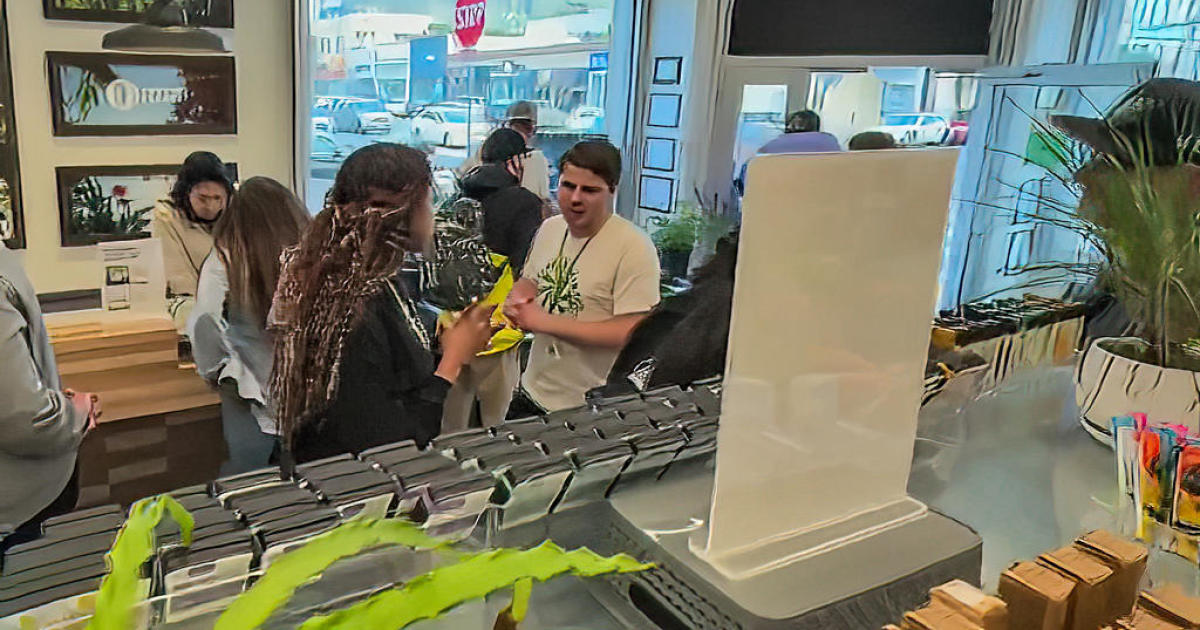Experts: Stealth Omicron Subvariant BA.2 Should Not Slow Pandemic Endgame
PLEASANTON (KPIX 5) -- The emergence of the BA.2 omicron subvariant comes just as a lot of people were starting to talk about the endgame of the pandemic -- the elimination mask requirements.
So, does the BA.2 subvariant change that?
"I think don't think so," said Dr. Karin Shavelson, Chief Medical Officer at MarinHealth. "We still need more information about the subvariant, but what we know at this time is that it doesn't suggest that it's any more dangerous than omicron."
Only 11 cases have been detected so far in California but the concern is this maybe even more transmissible than the original omicron.
But the new mutation is more fearsome than its predecessor says Shavelson. And while there may, someday, be a variant that does change the course of the pandemic, this is almost certainly not it.
"Everything I've seen suggests that it won't change things dramatically, and really isn't anything for us to worry about," Shavelson said. "I think we will go into another lull period now."
"It spread from about 20% of the sequences in December, than to 45% in the second week of January and now it's up to 65% of the cases in Denmark," said UCSF Infectious Disease Specialist Dr. Peter Chin-Hong.
Dr. Chin-Hong has been looking at data from abroad to learn more about the stealth omicron.
"We don't think it's causing more severe disease from the initial analysis from Denmark and I'm confident that our current vaccines will work at protecting most people from getting into the hospital," said Dr. Chin-Hong.
This mutation didn't come as a surprise to those in the medical field, including Stanford Health's Infectious Disease Specialist Dr. Yvonne Maldonado.
"I have no illusions that this virus is just going to disappear anytime soon," said Maldonado.
As long as the virus has the ability to spread, it carries the potential to mutate. Doctors feel vaccines are the best way to slow down the virus.
"I do think that if we were more vaccinated that would help, but remember, it's not just the US. We have to make sure everybody in the world gets access to vaccines," Maldonado explained.
As doctors learn more about coronavirus, Maldonado hopes there will be a shift in approach to this pandemic to an endemic. The goal is to have the data to be able to focus on those that are most vulnerable.
"How can we predict who are the people that are going to get symptomatic and hospitalized? Not run the risk of winding up on a ventilator and there's going to be more and more information that shows us who are these people that are at high risk," said Maldonado.
A lull, or an outright break from the pandemic is what many have been hoping for at the end of the omicron wave.
"We're getting to the point that between the vaccinations and the people that have gotten the omicron virus, it's going to decrease," says Guy Piccolo of Walnut Creek. "I think everybody's more than ready."
"We, at some point, do have to live with COVID," said UCSF Infectious Disease Expert Dr. Monica Gandhi. "And that means these mandates won't be in place."
Gandhi says we are on course for a break from the protocols.
"No mask mandates," Gandhi said of the coming period of virus calm. "No testing if you are asymptomatic. No more vaccine passports, and encourage people to go back to work. That's what life looks like in the U.K. right now. It's back to normal."
And, as case numbers continue to drop, she says the same relief will eventually come for schools as well.
"We are going to be in the control stage of this virus," said Gandhi. "And I doubt there's going to be mask mandates in the schools after a while."
California's current mask mandate started in mid-December, but it was extended. It is still set to expire on February 15.
KPIX 5 reporter Andrea Nakano contributed to this report.



